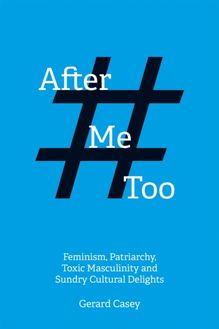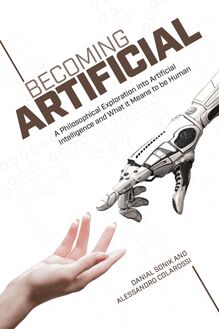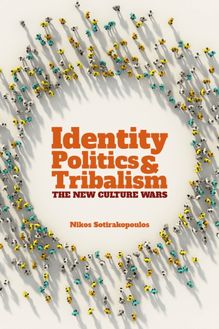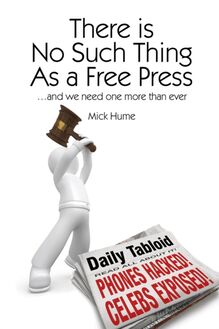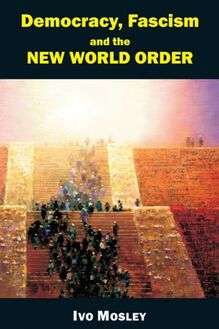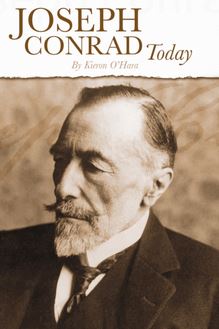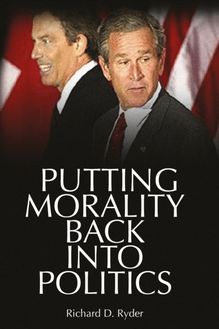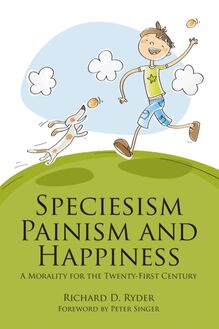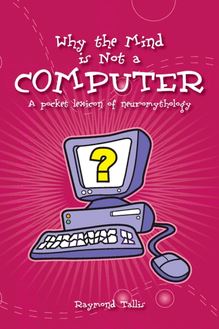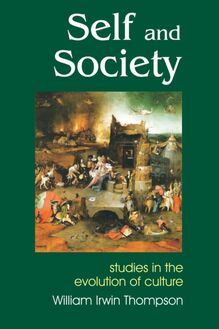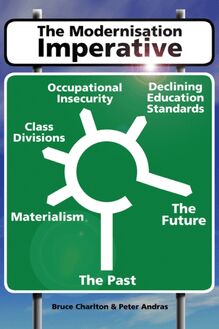-
 Univers
Univers
-
 Ebooks
Ebooks
-
 Livres audio
Livres audio
-
 Presse
Presse
-
 Podcasts
Podcasts
-
 BD
BD
-
 Documents
Documents
-
- Cours
- Révisions
- Ressources pédagogiques
- Sciences de l’éducation
- Manuels scolaires
- Langues
- Travaux de classe
- Annales de BEP
- Etudes supérieures
- Maternelle et primaire
- Fiches de lecture
- Orientation scolaire
- Méthodologie
- Corrigés de devoir
- Annales d’examens et concours
- Annales du bac
- Annales du brevet
- Rapports de stage
La lecture à portée de main
Vous pourrez modifier la taille du texte de cet ouvrage
Découvre YouScribe en t'inscrivant gratuitement
Je m'inscrisDécouvre YouScribe en t'inscrivant gratuitement
Je m'inscrisEn savoir plus
Vous pourrez modifier la taille du texte de cet ouvrage
En savoir plus

Description
Sujets
Informations
| Publié par | Andrews UK |
| Date de parution | 16 novembre 2016 |
| Nombre de lectures | 0 |
| EAN13 | 9781845408084 |
| Langue | English |
Informations légales : prix de location à la page 0,0324€. Cette information est donnée uniquement à titre indicatif conformément à la législation en vigueur.
Extrait
THE MORAL MIND
Henry Haslam
First published in 2005 by Societas
Imprint Academic, PO Box 200, Exeter EX5 5YX, UK
www.imprint-academic.com
Digital edition converted and distributed by
Andrews UK Limited
www.andrewsuk.com
© Copyright 2016 Henry Haslam
The right of Henry Haslam to be identified as the author of this work has been asserted in accordance with the Copyright, Designs and Patents Act 1998.
The moral rights of the author have been asserted.
No part of any contribution may be reproduced in any form without permission, except for the quotation of brief passages in criticism and discussion.
The views and opinions expressed herein belong to the author and do not necessarily reflect those of Imprint Academic or Andrews UK Limited.
Preface
Morality lies at the meeting point of several disciplines. Moral philosophy , theology, psychology, neuroscience, evolutionary biology and studies of animal behaviour all have their contributions to make. And, since the subject matter is the human personality, ideas from other sources can also add to the greater picture. Where there has been a gap in the literature, a gap that this volume attempts to fill, is a simple review of moral thinking, illustrating its wide diversity. As a result, general statements are made about morality without really considering just what morality is. For example, some writers claim that morality is consistent with the principle of natural selection, while others maintain that it is wholly at variance with it. There is an element of truth in both statements: it all depends on which aspects of morality you choose to look at. In this book I have set out to review a wide range of moral sentiments so that we can then see how far the evidence supports ideas such as these. The topics covered range from temptation to guilt, from altruism to fairness, from sex to economics, from forgiveness to animal welfare , and from cruelty in nature to the future of the planet.
The main part of this book, therefore, consists of a survey of the moral mind, looking at various different kinds of moral sentiment. As I brought together my accounts of different topics, I found that they naturally grouped themselves under three headings: the morality of instinct, the morality of custom, and the morality of beyond. This, rather tentative, attempt at classification helps to illustrate the diversity of our moral sentiments.
The moral sense is deeply embedded in the human mind, and it is possible to describe it without making any assumptions about how it connects with religious belief. Many people today recognise the need for a system of moral values that believers (I am a Christian myself) and non-believers can share, and the starting point is to examine and try to understand the range of moral sentiments and values that we hold.
Acknowledgements I received a great deal of helpful advice from Helen Oppenheimer, who reviewed the book, and from Anthony Freeman at Imprint Academic. Jeremy Harvey, Michael Haslam, Jean Kelly and Jane Plant also read the book in draft and gave me their comments. I am grateful to them all.
Henry Haslam
Taunton, August 2005
1. Introduction
I fully subscribe to the judgement of those writers who maintain that of all the differences between man and the lower animals, the moral sense or conscience is by far the most important.
Charles Darwin, The Descent of Man
The moral mind is an important part of what it is to be human. Our sense of right and wrong is deeply rooted in human nature. It is not easy to define, but we know that it exists. It comes naturally to us to consider that we, or other people, ought or ought not to have acted in a certain way, and it matters to us.
The moral sense is one of the characteristics that set us apart from other animals. We have other mental abilities, too, that are uniquely human, in that we can apply our minds in ways that no other species can. We can think about ourselves and our own mental processes, for example: we are self-conscious. We can focus our minds outside the here-and-now: we can think about what is taking place on the other side of the world, we can think about the past, and we can think about the future. We can hold political debates, and we can talk about yesterday’s football. All of these abilities provide us with extra skills and understanding, but the moral sense is different in that it provides us with values, a particular way of looking at the world. Charles Darwin, in the quotation at the head of this page, says that he agrees with the view that the moral sense is the most important of the differences between humans and other animals. He goes on to say that this sense is summed up in the word ‘ought’. Recent writers also consider that morality is an important defining attribute of human beings. This is implicit, for example, in the book titles The Ethical Primate (by the philosopher Mary Midgley, published in 1994) and The Moral Animal (by science writer Robert Wright, also 1994) and in the chapter heading ‘The Sanctimonious Animal’ in The Blank Slate by the psychologist Steven Pinker (2002).
Definitions
Reason and words derived from it have two common meanings. In one sense they refer to a process of logic that gets us from a starting point to a conclusion. If the starting point is false, the conclusion is likely to be false too (‘Garbage in, garbage out’, as they say about computers). In this sense, reason is a tool, not a motivation, and is only used if there is some incentive to do so, even if the incentive is no more than a love of reasoning. This is the sense that Hume (1739/40) was using when he wrote ‘ Reason is, and ought only to be the slave of the passions, and can never pretend to any other office than to serve and obey them.’ Reason is also used in a very different sense, meaning intuitive good sense, combined with consideration for other people. When we talk about ‘a reasonable person’ or ‘unreasonable behaviour’, we are not talking about cold logic; we are referring to general good sense and a willingness to accommodate to other people (or a lack of these). Modern writers who argue for a system of morality based on reason probably include both meanings of the word: they are pleading for intuitive good sense as the basis, combined with a willingness to listen to other people ’s opinions, and also for principles that are open to discussion by logical argument.
Emotions or feelings (equivalent to Hume’s ‘passions’ in the passage just quoted) provide the driving force for reasoning, as well as for behaviour in general.
Instincts are innate, inherited patterns of thought and behaviour in humans and other animals. They can be powerful motivating forces. Custom refers to a generally accepted way of behaving that is specific to a particular society, acquired by learning from other individuals and therefore not passed on genetically. Instinctive behaviour and customs are both shared behaviours (i.e. not restricted to single individuals); the former are habits that are passed on genetically, while the latter are habits that are learned from others.
Conscience and moral sense both refer to the inner voice that makes moral judgements; conscience is more subjective, relating to our own behaviour (‘My conscience is telling me to...’; ‘I have a guilty conscience about...’). The moral sense is more detached and objective: it makes judgements on general issues and other people’s behaviour, as well as our own. The words good , bad , kind and cruel , used in a moral context to describe behaviour, express a moral judgement on the behaviour in question .
Altruism (in humans) is a concern for the well-being of others. Altruistic behaviour (in humans and other animals) is behaviour that benefits another at some cost to the altruist. There is normally no expectation of any benefit in return (for the concept of ‘reciprocal altruism’ see Caring for Other Young and Vulnerable Animals in Chapter 3). Altruism and selfishness are discussed in The Role of Altruism and Choice and Selfishness respectively in Chapter 2.
Natural selection (Chapter 2) is the evolutionary process described by Charles Darwin by which random mutations of genetic material produce variants of a species, and those variants which are best able to survive in the environment in which they live are those that prosper and have offspring inheriting similar characteristics. It has an important role in the evolution of life forms, but it is not the only means by which evolution takes place.
The word sociobiology was coined by E O Wilson (1975), who defined it as the systematic study of the biological basis of all social behaviour; great importance was attached to natural selection. The related term evolutionary psychology is variously defined; expressed simply, it is the attempt to understand the human mind in an evolutionary perspective.
The term moral principle is used for any general principle like truth-telling or kindness. Different moral principles sometimes come into conflict, and one will have to defer to the other (as truth-telling sometimes gives way to kindness).
The view that no other species has a moral sense is supported by two of the greatest twentieth-century observers of animal behaviour , Konrad Lorenz, who studied numerous species, wild and tame, and Jane Goodall, whose career was devoted to a study of our closest relatives, chimpanzees, in their natural habitat in Tanzania. To read the work of these dedicated and meticulous observers is to realise how similar human behaviour is to that of other animals, in so many ways; it is therefore particularly significant that both of them should emphasise that humans are unique in their sense of right and wrong.
Konrad Lorenz, in Man Meets Dog (
-
 Univers
Univers
-
 Ebooks
Ebooks
-
 Livres audio
Livres audio
-
 Presse
Presse
-
 Podcasts
Podcasts
-
 BD
BD
-
 Documents
Documents
-
Jeunesse
-
Littérature
-
Ressources professionnelles
-
Santé et bien-être
-
Savoirs
-
Education
-
Loisirs et hobbies
-
Art, musique et cinéma
-
Actualité et débat de société
-
Jeunesse
-
Littérature
-
Ressources professionnelles
-
Santé et bien-être
-
Savoirs
-
Education
-
Loisirs et hobbies
-
Art, musique et cinéma
-
Actualité et débat de société
-
Actualités
-
Lifestyle
-
Presse jeunesse
-
Presse professionnelle
-
Pratique
-
Presse sportive
-
Presse internationale
-
Culture & Médias
-
Action et Aventures
-
Science-fiction et Fantasy
-
Société
-
Jeunesse
-
Littérature
-
Ressources professionnelles
-
Santé et bien-être
-
Savoirs
-
Education
-
Loisirs et hobbies
-
Art, musique et cinéma
-
Actualité et débat de société
- Cours
- Révisions
- Ressources pédagogiques
- Sciences de l’éducation
- Manuels scolaires
- Langues
- Travaux de classe
- Annales de BEP
- Etudes supérieures
- Maternelle et primaire
- Fiches de lecture
- Orientation scolaire
- Méthodologie
- Corrigés de devoir
- Annales d’examens et concours
- Annales du bac
- Annales du brevet
- Rapports de stage
